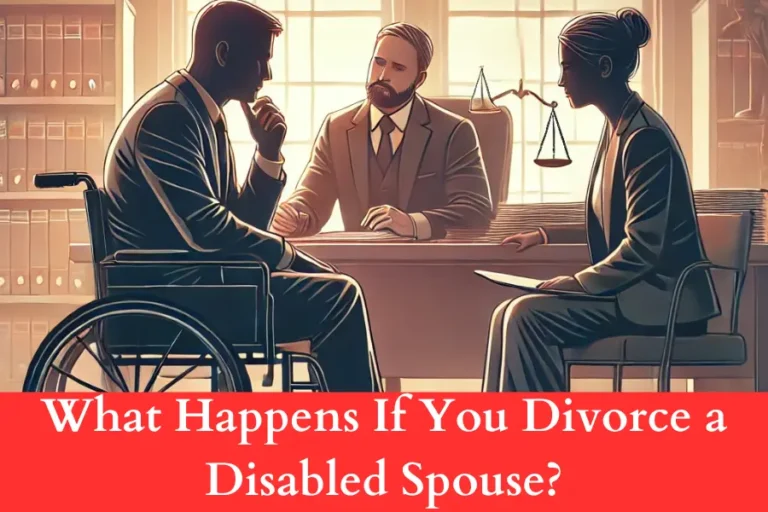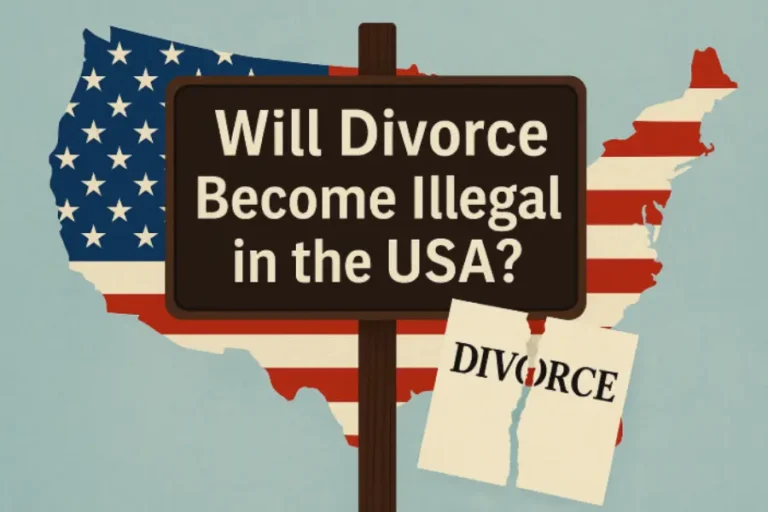Can You Divorce Without Splitting Assets? Here’s What You Need to Know
Divorce is tough, but losing the things you’ve worked hard for? That’s even harder. It’s no surprise you’re asking, “Can you divorce without splitting assets?” It’s a tricky question, but here’s the short answer: Yes, you can—but only if you play your cards right.
Here’s the deal—laws, emotions, and agreements can make asset division messy. You might worry about keeping your house, your savings, or even family heirlooms. But don’t panic just yet. There are ways to protect what’s yours, and I’ll show you how.
If you’ve ever felt stuck or unsure where to start, this guide is for you. We’ll talk about prenuptial agreements, separate property, and other smart ways to avoid splitting assets during a divorce. Stick with me—I’ll help you navigate every step of the process. You’ve got this!
Key Points
- Prenuptial and postnuptial agreements protect assets by setting rules upfront.
- Separate property includes anything you owned before marriage or received as a gift or inheritance.
- Mutual agreements allow you and your spouse to decide who keeps what.
- Short-term marriages often simplify asset division due to fewer shared properties.
- Waiving rights through a settlement agreement can avoid lengthy disputes.
- If one spouse refuses to cooperate, courts can step in and enforce fairness.
- Personal items, licenses, and gifts are usually excluded from division.
- Understanding the laws and getting legal advice makes all the difference.
Can You Divorce Without Splitting Assets?

Yes, you can divorce without splitting assets, but it’s not as straightforward as just saying, “I keep mine, and you keep yours.” It really depends on your unique situation, the laws where you live, and how you and your spouse handle the process.
Let’s break it down together and look at the key ways this could work for you:
Prenuptial or Postnuptial Agreements
Okay, let’s be real—having a prenuptial or postnuptial agreement in place is like having a safety net. If you and your spouse agreed before (or even during) the marriage on how to handle assets in case things don’t work out, this can save a lot of drama. These agreements spell out who gets what, so there’s no need to split assets.
For instance, if you or your spouse owned a business before getting married, you can include in the prenup or postnup that it stays with the original owner. This way, if a divorce happens, the business is off the table. It’s simple and prevents messy disputes down the line.
But here’s the catch: these agreements need to be solid. If one of you was pressured to sign or if it’s just plain unfair, a court could throw it out. So, getting it done right—preferably with a lawyer—makes all the difference.
Separate Property
Here’s the thing about separate property: it’s yours, and it usually stays yours. This includes anything you owned before the marriage, inheritances, gifts meant specifically for you, or certain personal injury settlements. These things are typically off-limits during a divorce, which is great news if you’ve kept them truly separate.
For example, let’s say you inherited $50,000 from a relative and kept it in your personal account, untouched by marital funds. That money is usually considered yours alone. But if you mixed it with joint funds, like putting it into a shared bank account, it might now be seen as marital property. Tricky, right?
The key here is keeping things clear. If you want to protect your separate property, don’t mix it with marital assets. Keep those lines distinct, so there’s no question about what belongs to you.
Mutual Agreement
Now, this one is a game-changer if you and your spouse are on good terms. If both of you agree to keep your own stuff and not split assets, you can make it happen. Courts are usually fine with this as long as the agreement is fair and legal.
Picture this: one of you keeps the house, and the other takes the savings account. It’s a mutual decision, and because you both agree, the court will typically approve it. It works best when there’s trust and no hard feelings involved.
But you should write everything down and make it official. A lawyer can help ensure the agreement is airtight, so neither of you can come back later and say, “Wait a minute, I changed my mind.”
Short-Term Marriages
If your marriage was short and sweet (or maybe not so sweet), splitting assets might not even be necessary. In many cases, couples in short-term marriages don’t have much shared property to divide, especially if they keep their finances separate.
Think about it: if you were married for only a year or two and didn’t buy a house together or merge bank accounts, there’s not much to argue over. You might both leave with what you brought into the marriage, no splitting required.
But it’s not always that simple. If you did acquire significant shared assets, like a car or a vacation home, those might still need to be addressed. Short-term marriages make the process easier, but it’s not a free pass.
Waiving Rights
Here’s another option: you can agree to waive your rights to certain assets. This is often done through a settlement agreement where you both decide who keeps what and voluntarily give up claims to other things.
For example, maybe you don’t care about your spouse’s retirement account, but you really want to keep the family car. You can waive your rights to the retirement funds in exchange for keeping the car. It’s a negotiation, and as long as it’s fair, the court will usually approve it.
The important thing here is to make sure you’re not giving up too much or agreeing to something under pressure. If an agreement is one-sided, a court might step in. So, take your time, talk it out, and get legal advice if needed.
What Happens When One Person Refuses to Split Assets?
Oh boy, this can get messy. If one spouse digs their heels in and refuses to cooperate, things can escalate quickly. But don’t worry—there are ways to handle this.
The Court Steps In
When one spouse refuses to split assets, the court can step in and make the decisions. Judges might demand financial disclosures, hire experts to evaluate property, or issue orders to divide assets. For example, if someone is hiding money, the court can investigate and make sure everything’s on the table.
It Gets Expensive
Unfortunately, fighting over assets can rack up legal fees and drag the process out. You’ll likely need lawyers, mediators, or even accountants to sort things out, which can cost a lot of time and money. Nobody wins in this scenario except maybe the lawyers.
Penalties Are Real
If someone is being sneaky or outright refusing to cooperate, the court can penalize them. This might mean awarding more assets to the other spouse or enforcing stricter rules. It’s the court’s way of saying, “Play fair or face the consequences.”
The Emotional Toll
Let’s not forget the stress this adds. Fighting over assets can feel like a never-ending battle, and it takes an emotional toll on everyone involved. If you find yourself in this situation, lean on friends, family, or even a therapist to help you through it.
What Assets Cannot Be Split in a Divorce?

Now, not everything is up for grabs in a divorce. Some things are considered personal or untouchable, and knowing what these are can make things a lot clearer.
Personal Belongings: Your personal items—like clothes, small jewelry, or sentimental keepsakes—are usually yours to keep. Unless they’re super valuable or part of a dispute, these things don’t get split.
Professional Licenses and Degrees: Your professional achievements, like a medical or law license, stay with you. While a court might consider their earning potential when deciding alimony, the license or degree itself isn’t something your spouse can claim.
Inheritances and Gifts: Anything inherited or gifted directly to you is generally considered separate property. But remember, if you used those funds or items for shared expenses, they might lose their separate status.
So, there you have it. Divorce without splitting assets is possible, but it takes planning.
Conclusion
Divorcing without splitting assets might feel like a challenge, but it’s absolutely doable if you take the right steps. Here’s a quick summary to keep in mind:
- Prenuptial and postnuptial agreements are your first line of defense.
- Separate property stays yours if it’s not commingled with marital assets.
- Mutual agreements allow both spouses to keep what they own without court battles.
- Short-term marriages usually involve fewer assets to divide.
- Waiving rights through settlements can help you negotiate a fair solution.
Remember, preparation is everything. Talk to a lawyer, understand your rights, and focus on what matters most to you. Divorce doesn’t have to mean losing what’s yours—you’ve got options, and you’re stronger than you think.






